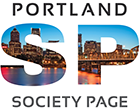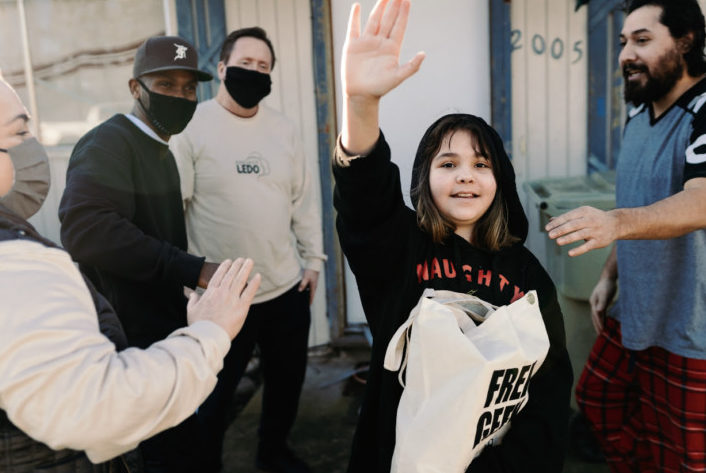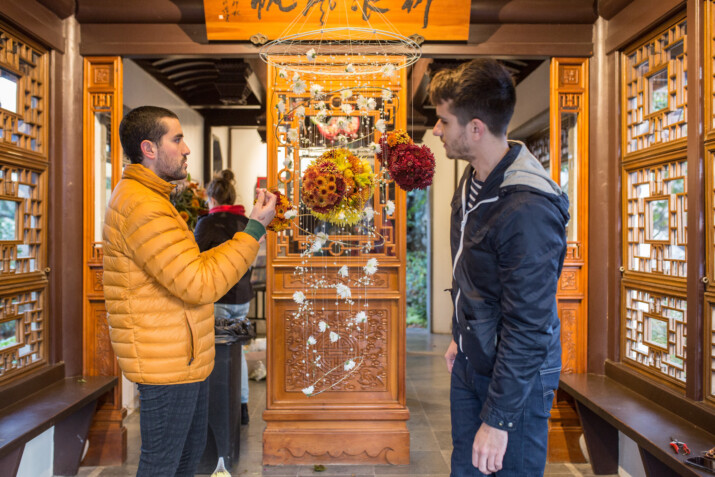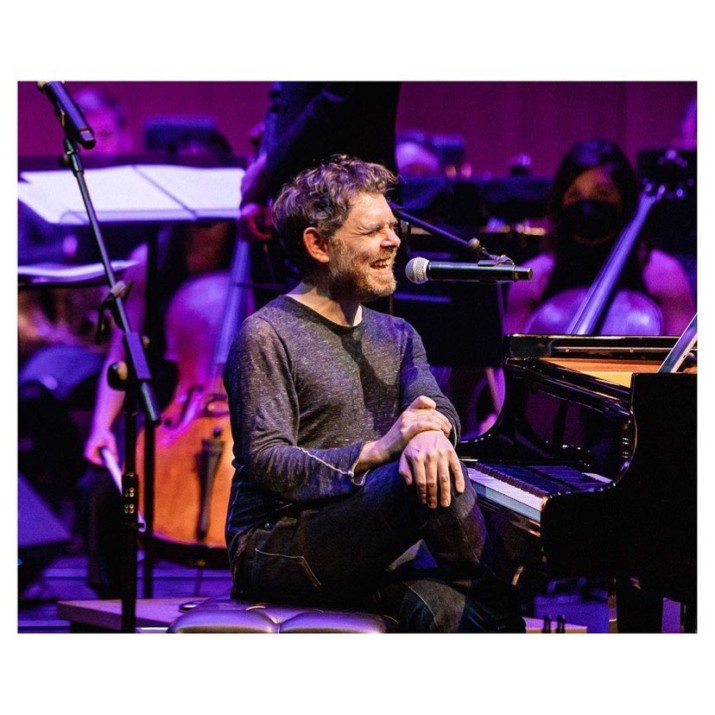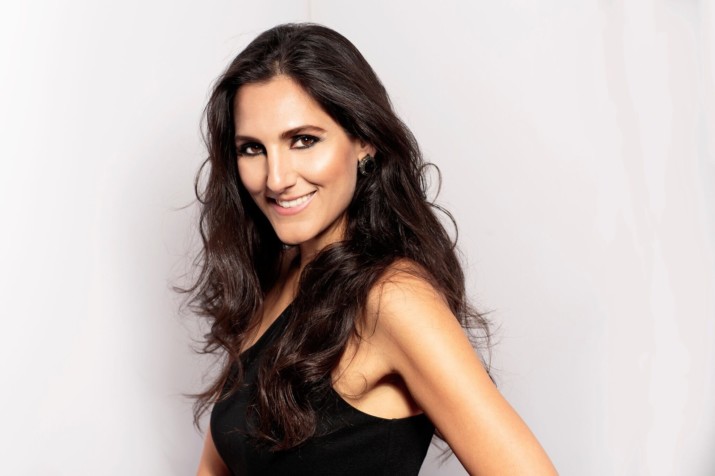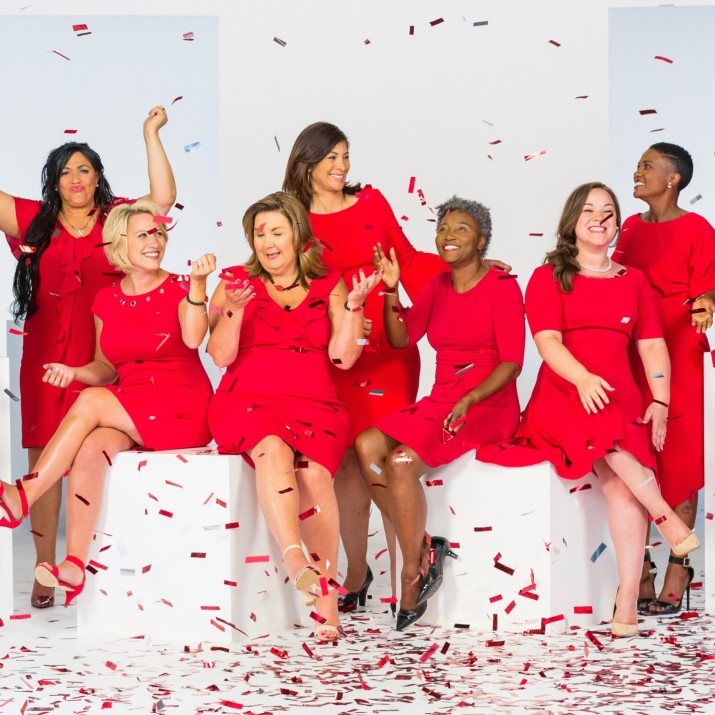Portland, OR. The nonprofit that takes donated computers, removes all personal information, and gives them to needy people is working in overdrive. Free Geek helped to deliver computers to students at William Walker Elementary School as seen above. The nonprofit delivered 40 devices to families of students in need, but there are still many more people in the Portland area who need to get online.
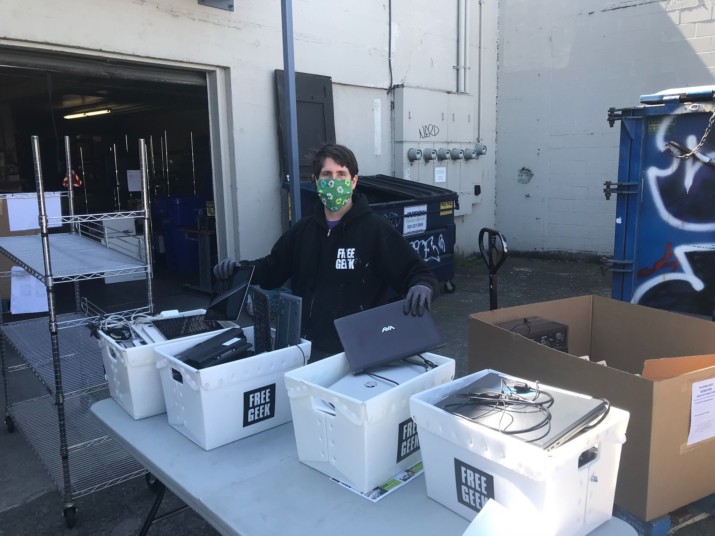
At the beginning of the COVID-19 pandemic, Free Geek saw a 4,000% increase in the number of requests for computers for low-income people.
The number of requests continues to grow according to Free Geek marketing specialist, Charlie D’eve. She explains how getting online is vital for people. “It’s families of five who received only one computer from the school their children attend when e-schooling began. Its people asking for computers for their parents whom they haven’t been able to contact since the beginning of the pandemic. It’s parents who lost their jobs during the pandemic, looking to find work online. It’s college students who relied on the library for their homework. It’s therapists who have clients with no access to them. It’s social workers. It’s houseless youth. It’s cousins, neighbors, friends.”
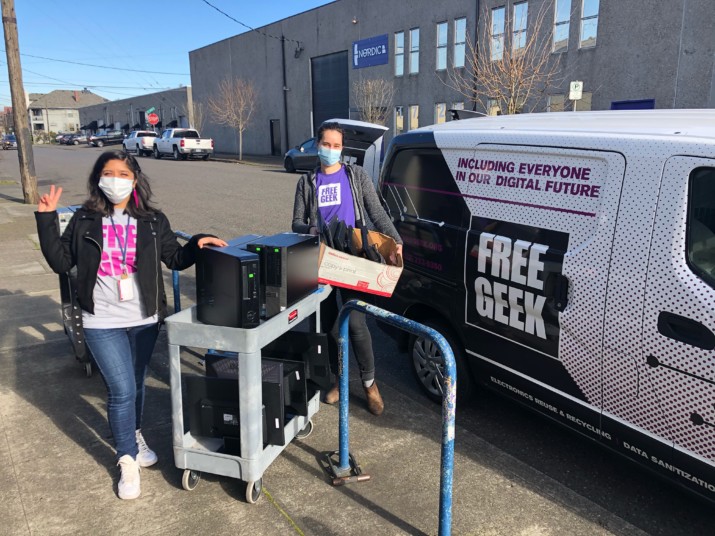
In January, Free Geek staff members fill their van with laptops and desktops to deliver a hardware grant to families living at The Louisa Flowers, Multnomah County’s largest low-income apartment building.
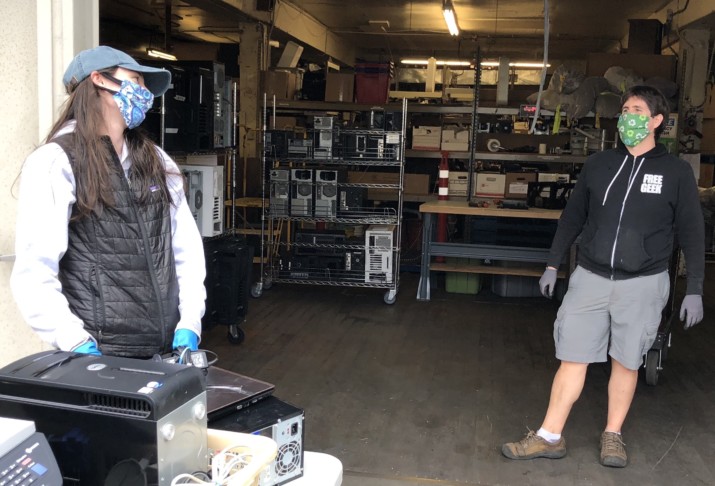
For the past two decades, Free Geek has offered a way to divert technology that would otherwise be recycled or thrown away, refurbish it, and give it back to the community at no or low cost.
Since COVID-19 began the organization has been able to partner with programs including SNAP, Every Child Oregon, Project LEDO, Black Resilience Fund, Portland State University, and many more community change organizations according to D’eve.
In their partnership with SNAP, Free Geek has provided 121 devices and is working to provide 300 more. “Our Gift a Geekbox program has been seeing around 20 applications a day since we put the program up on our site. Our highest amount of applications in one day was 240. We haven’t even advertised the program yet,” says D’eve.
Other programs available through Free Geek include:
- Plug Into Portland (computers for K-12 students)
- Hardware Grants (free and low-cost technology grants)
- Online Shop (low-cost tech through an online store)
- Corporate Technology Donation (bring corporate used tech back into the community)
- Personal Tech Donation (bring your personal tech back to those who need it)
- Data Security (data destruction certification for your tech)
There are a number of challenges Free Geek has faced throughout the pandemic, although one challenge has hit the organization the hardest. According to D’eve there is a great need for laptops to provide for students going through e-schooling, and telehealth services for the elderly.
Vaccines are now available in Oregon, with the elderly (age 65 and older) prioritized receiving the vaccine first throughout February. This does not come without challenges, however, as many people are having trouble navigating an online platform and finding ways to get to their appointments. In response to this, Free Geek is relying on potential partnerships with businesses to ensure they can get devices to those who can sign up for the vaccine but don’t have digital access.
Currently, there are no volunteer opportunities with Free Geek. However, there are many other ways to get involved, according to D’eve, including:
- Give a gift to Free Geek at give.freegeek.org
- Donate your used technology
- Ask your employer about where your used tech goes, and start a conversation about providing that tech to Free Geek
- Start a fundraiser for us
- Start a tech drive for us
- Talk with your friends about Free Geek – shout us out on social media!
- Know a community change organization or person that needs a computer? Help them get one from us
“I think what people are starting to notice is that even though they have a device, their next-door neighbor likely doesn’t. And now we’re seeing people notice, and people wanting to make sure that changes,” says D’eve.

Staff members deliver laptops to Title I elementary schools by partnering with project LEDO.
From the Free Geek website: Free Geek’s mission is to sustainably reuse technology, enable digital access, and provide education to create a community that empowers people to realize their potential. Including everyone in our digital future.
27% of Americans do not own a computer. And one out of ten families do not have internet at home. This lack of access is sharply stratified along lines of income, race, age, and education. Low-income families, immigrants, seniors, and children are digitally under-connected, many with mobile-only internet access, which often isn’t enough.
The crisis is growing. Our world is growing more digital every day, and vulnerable populations are being left behind. The digital divide separates individuals along economic lines – from the cost of technology and devices, to which neighborhoods have better broadband access. Day-to-day tasks middle- and upper-class individuals take for granted become massive challenges to communities where basic technology and skills feel alien and inaccessible, due to language or financial barriers. From applying for jobs to completing homework assignments, from paying bills to accessing medical records to communicating with family, people with the means to access technology are at a decided advantage over those who are not. This is a social justice issue. Without technology access, full participation in nearly every aspect of American society — from economic success and educational achievement, to positive health outcomes and civic engagement — is compromised
Now think about this: the EPA estimates that only 27% of e-waste is recycled nationally. E-waste represents 2% of America’s trash in landfills, but it equals 70% of overall toxic waste.
A large number of what is labeled as “e-waste” is actually not waste at all, but rather whole electronic equipment or parts that are readily marketable for reuse or can be recycled for materials recovery. So what if we repaired and reused these devices, in order to keep our community connected while keeping e-waste out of landfills?
Our programs are founded on this very idea. Free Geek has created a unique circular model which points two existing societal problems – excess electronic waste in need of sustainable reuse and recycling, and lack of access to basic technology among vulnerable populations – back at each other to reveal innovative solutions. The computers we grant to our Digital Inclusion participants are saved from ending up in landfills, and instead, go on to find a new life helping provide our community’s most vulnerable populations with the digital literacy skills they need to succeed and thrive.
Want to join the movement helping both our environment and our community? Join us and make an impact. For just $10 a month, you can provide one person a device, tech support, and digital skill training. Join our monthly giving community THE BRIDGE, and give the gift of clean water all year round.
